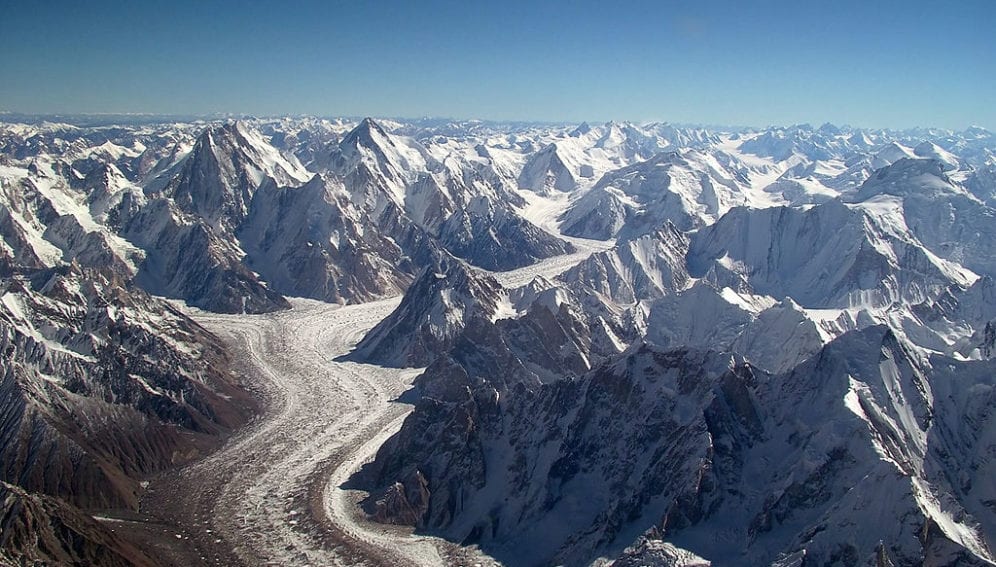By: Faisal Raza Khan
Send to a friend
The details you provide on this page will not be used to send unsolicited email, and will not be sold to a 3rd party. See privacy policy.
[ISLAMABAD] Are the Karakoram glaciers receding or advancing? Scientists continue to be split on the issue, but agree that extensive research is needed before a final pronouncement can be made.
At an international conference held this month (10 September) in Islamabad, Pakistani scientists stuck to the idea that the Karakoram glaciers were melting fast, while European scientists said they were stable compared to the glaciers in the Hindukush and Himalayan regions.
The conference on 'Karakoram Resources and Climate Change: Glacier, Water and Ecosystem', jointly organised by the Italy-based Everest-K2 (EvK2CNR) Committee and the Karakoram International University , Gilgit, was attended by some 35 experts from Europe and Pakistan, with a focus on science collaboration through shared research and use of advanced technologies.
Glaciologists at the meet discussed the ‘Karakoram Anomaly’ — a term used to describe the expansion of glaciers in central Karakoram that contrasts with the trend of glaciers around the world receding as a result of climate change.
Christoph Mayer, a glaciologist at the Bavarian Academy of Sciences and Humanities, Munich, says debris on the Karakoram glaciers impedes real time research on the impact of climate change. However, without the debris cover the glaciers would disappear, Mayer tells SciDev.Net.
For Pakistan, which is dependent on glacial melt for much of its water, climate warming and its effect on glaciers are of vital importance, although there is very little data on the phenomenon.
Ghulam Rasool, who heads the Pakistan Meteorological Department, says low snow accumulation and rising heat are causing the snow-line to recede. "The average snow-line shift is 1,125 metres in the last 32 years, while uphill migration of animals and plants was also seen," he tells SciDev.Net.
"Heat wave events in the Gilgit-Baltistan region are now frequent with summer temperatures rising to 40 degrees Celsius," Rasool said. "Snow accumulation is shifting to February instead of the November —January period and this could mean the snow melting before it can become part of the glacier."
Matthias Winiger, vice-chancellor, University of Bonn, attributes the Karakoram Anomaly to higher precipitation levels in the mountains in winters, though he points to different data sets giving varying results. This, Winiger says, throws up a challenge that calls for "national, regional and international research collaboration and data sharing."














